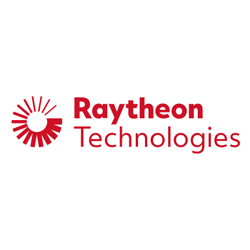Ethical Artificial Intelligence Becomes A Supreme Competitive Advantage
- by 7wData

That's the word coming out of a study of 1,580 executives and 4,400 consumers from the Capgemini Research Institute. As organizations progress to harness the benefits of AI, consumers, employees and citizens are watching closely and are ready to reward or punish behavior. Those surveyed said that they would be more loyal to, purchase more from, or be an advocate for organizations whose AI interactions are deemed ethical.
Companies using AI in an ethical way will be rewarded, the study's authors -- a team led by Anne-Laure Thieullent,
managing director of Capgemini's Artificial Intelligence & Analytics Group -- concludes. Among consumers surveyed, 62% said they would place higher trust in a company whose AI interactions they perceived as ethical, 61% said they would share positive experiences with friends and family, 59% said that they would have higher loyalty to the company, and 55% said that they would purchase more products and provide high ratings and positive feedback on social media.
In contrast, the study confirms, when consumers’ AI interactions result in ethical issues, it threatens both reputation and the bottom line: 41% said they would complain in case an AI interaction resulted in ethical issues, 36% would demand an explanation and 34% would stop interacting with the company.
AI may be still relatively new in its current form, but ethical issues resulting from AI systems have been observed and experienced, the survey shows. Close to half of consumers, 46%, say they have already experienced the impact of an ethical issue with AI. On the corporate side, executives in close to nine out of 10 organizations (86%) believe that they have experienced ethical issues as a result of their use of AI systems over the last two to three years. Examples include the collection of personal patient data without consent in healthcare, and over-reliance on machine-led decisions without disclosure in banking and insurance. Executives cited reasons including the pressure to urgently implement AI, the failure to consider ethics when constructing AI systems, and a lack of resources dedicated to ethical AI systems.
Most consumers (75%) said they want more transparency when a service is powered by AI, and to know if AI is treating them fairly (73%). Over three quarters (76%) of consumers think there should be further regulation on how companies use AI.
Organizations are starting to realize the importance of ethical AI: 51% of executives consider that it is important to ensure that AI systems are ethical and transparent. Organizations are also taking concrete actions when ethical issues are raised. The research found that 41% of senior executives report to have abandoned an AI system altogether when an ethical issue had been raised.
Thieullent and her co-authors provide the following words of advice for achieving greater ethics in AI adoption:
Develop policies that define acceptable practices for the workforce and users of AI applications: "These policies must define boundaries for the workforce, giving them a framework in which to operate and ensuring they know what is acceptable practice," the Capgemini team states. "Those requesting access must have a strong justification for why they need to use a data set."
Build awareness of ethical questions across the Organization: "Organizations must build awareness across
functions and organizational layers – of ethics, transparency, explainability, interpretability, and bias in AI systems," says Thieullent and her co-authors. "In particular, teams building and deploying AI systems need to be fully aware of these issues if they are to mitigate any ethical risks or weaknesses."
Create ethics governance structures and ensure accountability for AI systems: "Leadership teams also
need to create clear roles and structures, assign ethical AI accountability to key people and teams and empower them. Create new roles, such as AI ethicists.
[Social9_Share class=”s9-widget-wrapper”]
Upcoming Events
Evolving Your Data Architecture for Trustworthy Generative AI
18 April 2024
5 PM CET – 6 PM CET
Read MoreShift Difficult Problems Left with Graph Analysis on Streaming Data
29 April 2024
12 PM ET – 1 PM ET
Read More




